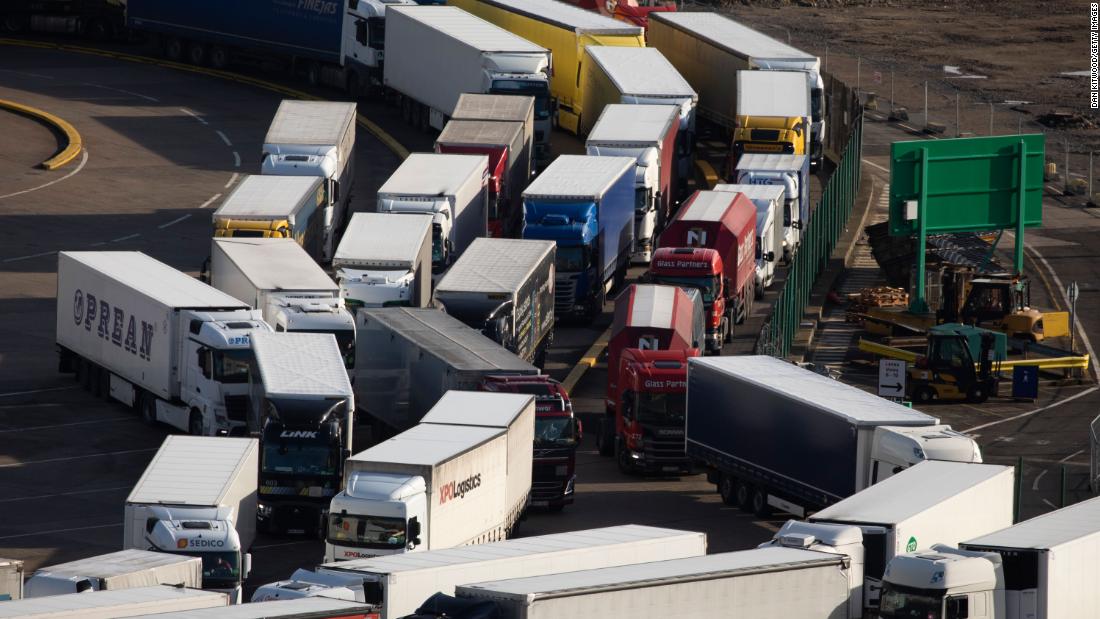The bloc’s imports fell 29% to £ 16.2 billion ($ 22.6 billion) in January compared to the previous month, when UK companies stocked products before the end of the Brexit transition period. Import and export figures do not include trade in gold and other precious metals.
The drop in activity with its largest trading partner has led to the biggest monthly drops in Britain’s overall imports and exports of goods since 1997, ONS said.
Since the UK completed its exit from the European Union on December 31, British exporters have had to face new border controls and customs procedures that have delayed shipments to Europe. The description of Prime Minister Boris Johnson’s difficulties as “initial problems” has generated resistance from business groups.
“External evidence suggests that part of the slower commodity trade in early January 2021 can be attributed to the disruption caused by the end of the transition period,” said ONS in a statement on Friday. Imports and exports started to increase at the end of the month, he added.
ONS said the trade “has not been typical in recent months” and urged caution when comparing the report with recent data. The United Kingdom also entered into a new national blockade against the coronavirus in early January, which has affected economic activity.
UK GDP fell 2.9% in January compared to the previous month, when it expanded, according to ONS. GDP was 9% below the levels observed last February, before the coronavirus attack. The service sector acted as the main obstacle to growth, while manufacturing contracted for the first time since April 2020, ONS said.
Brexit drops fish, cars
A clear example of what Brexit meant for UK companies came from Scotland’s fishing industry, which went into crisis due to post-Brexit bureaucracy which meant that fresh fish did not reach customers in time and had to be discarded in some cases .
“While the declines in exports and imports are not entirely due to Brexit, they increase the chances that Brexit will have a more lasting influence on trade flows,” said Paul Dales, chief economist at Capital Economics for the United Kingdom.
According to ONS, exports of food and live animals, including seafood, to the European Union fell by almost 64% in January compared to the previous month.
Pharmaceuticals traded with EU countries suffered the biggest overall declines in imports and exports, which was probably a consequence of the stock in preparation for Brexit, the ONS said.
